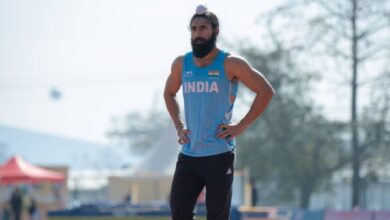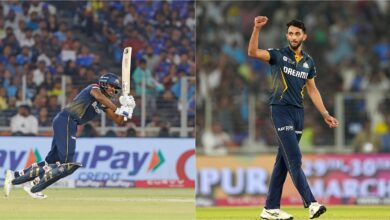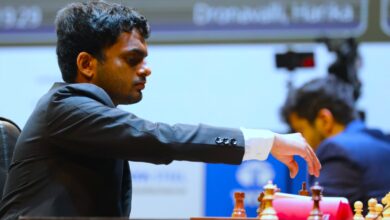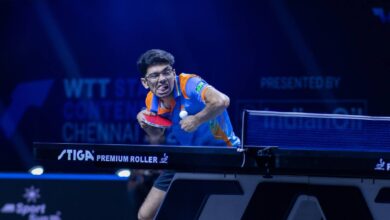View, Review: Are the new generation captains in the IPL the real decision-makers?

In a recent Q & A session with reporters, the video of which was posted the Kolkata Knight Riders media team, the franchise’s newly-appointed captain Shreyas Iyer was asked about Venkatesh Iyer’s batting position.
The left-hander rose to prominence as an impact-opener in the last year’s Indian Premier League, but the Indian team management used him as a finisher in T20Is. The question about Venkatesh’s batting position this term was pretty legitimate, but his captain’s answer reeked of indecision. “We haven’t decided yet. I need to have a chat with the coach and management,” Shreyas said.
This takes us to the question, are the new generation captains in the IPL the real decision-makers? The captaincy l this term might raise a few eyebrows – Mayank Agarwal helming Punjab Kings, Hardik Pandya leading Gujarat Titans, KL Rahul captaining Lucknow Super Giants, Sanju Samson in charge of Rajasthan Royals, Rishabh Pant skippering Delhi Capitals and Shreyas at KKR.
Among the sextet, only Rahul has the experience of captaining at the highest level, when he stood in for the injured Virat Kohli in the second Test in South Africa and proved to be completely out of his depth. The majority of the IPL franchises, though, have been focusing on picking sellable faces as their captains, with the coaching staff looking after strategy.
For a tactically naive Rahul, there would be the tactically shrewd Gautam Gambhir at Lucknow, mentoring the team. Other new captains, too, would be heavily reliant on their respective head coaches and the staff. This is like imitating football, where the captain plays second fiddle to the manager. Cricket, however, is a completely different sport, offering a bigger intrigue and demanding more on-the-spot decisions. Relying heavily on the backroom staff can be counter-productive.
When former South Africa coach, the late Bob Woolmer, had connected himself via an earpiece to then South Africa captain Hansie Cronje during the team’s first game at the 1999 World Cup, cricket witnessed a paradigm shift in the skipper’s authority. The ploy was red-flagged the ICC and in the semifinal, when Shane Warne was spinning a web around the South African batsmen and during the final over brain fade, Woolmer’s new-age coaching didn’t come to the Proteas’ rescue.
In the context of the IPL, so far nine titles have been shared between MS Dhoni and Rohit Sharma. Gambhir won two for KKR. Warne redefined T20 captaincy, while taking Rajasthan Royals to the crowning glory in 2008. A year later, Adam Gilchr showed how belief and tactical shrewdness could tilt the balance in his side’s favour, as Deccan Chargers successfully defended 143 against Royal Challengers Bangalore in the final. In 2016, when Sunrisers Hyderabad won the title, they had a strong captain in David Warner.
Horically, teams with top-class captains have triumphed in the IPL and from that perspective, the recent fad of appointing low-profile skippers, ostensibly based on their marketability, is in direct conflict with cricketing logic.
Rewind to the last year’s tournament and Dhoni’s use of Robin Uthappa. With Suresh Raina struggling, the Chennai Super Kings captain brought the senior batsman into the playing eleven towards the back-end of the group phase. Uthappa was given a couple of games to get into the groove, as Dhoni knew full well that pitches for the playoffs and final would be much better, aiding the former’s natural stroke-play. Uthappa scored 63 off 44 balls against Delhi Capitals in Qualifier 1 followed a game-turning 15-ball 31 against KKR in the final. Later, a CSK official told The Indian Express how the team benefited from the captain’s proactive thinking.
Like Dhoni at CSK, Rohit Sharma’s leadership has been the bedrock of Mumbai Indians’ success in the IPL. Unlike the Chennai-based franchise, where the cricketing part is taken care of Dhoni and coach Stephen Fleming, MI have a few stellar names in their set-up, but Rohit takes the final call.
Rohit’s assertive style of leadership has worked wonders for the Indian team also, at a time when the side was in a bad moment, on the heels of a failed T20 World Cup campaign followed Virat Kohli’s captaincy exit. As far as the IPL is concerned, RCB have stuck to a strong captain theory handing over the reins to Faf du Plessis, while Sunrisers, too, have a top leader in Kane Williamson.
Two new teams have come to the IPL fold but yet again, the tournament will start with CSK and MI as top two title favourites. To paraphrase a Gary Lineker quote: Cricket is a simple game. Twenty-two players try to score runs and take wickets and at the end, the better-captained team wins.







